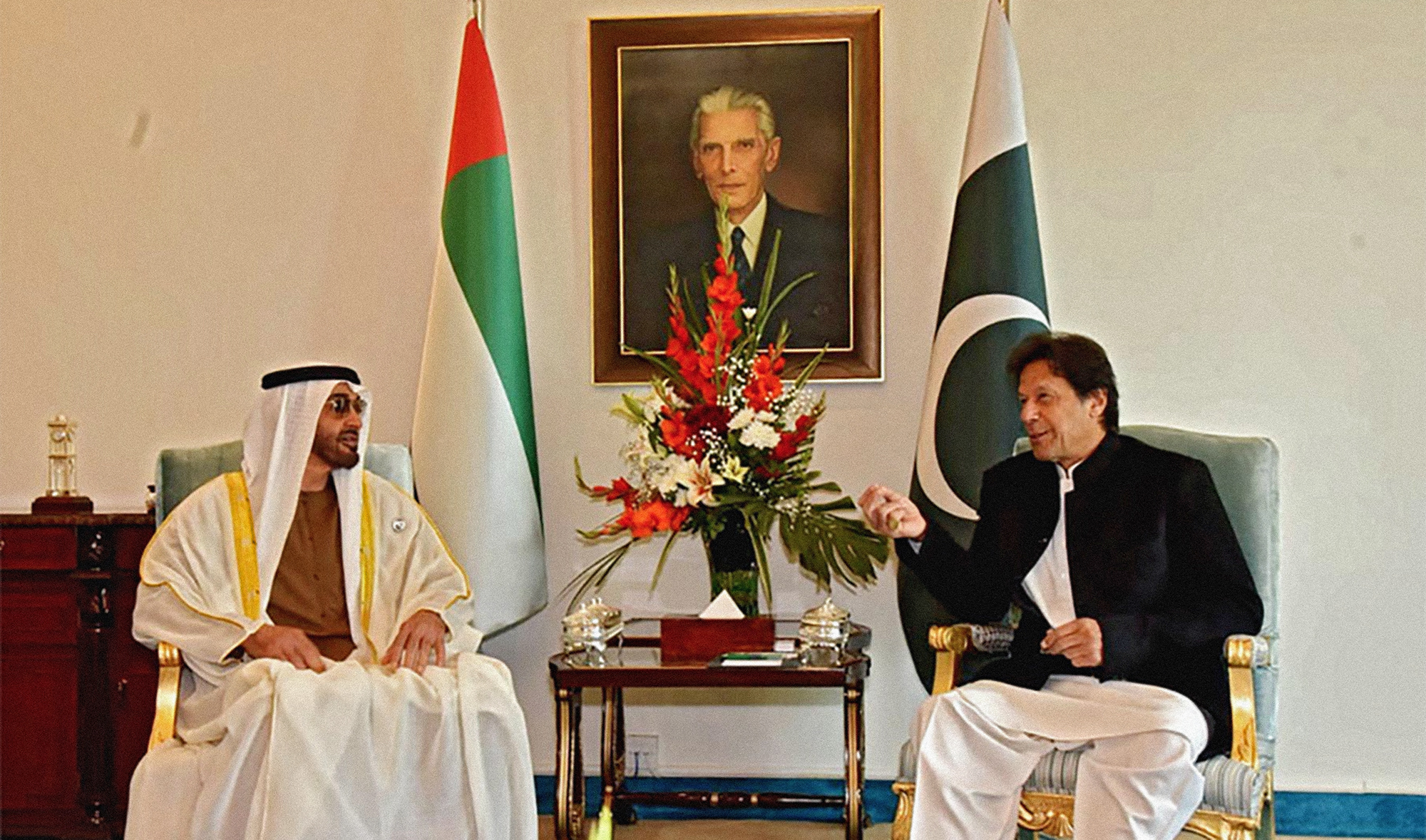ISLAMABAD: Pakistani Prime Minister Imran Khan and Saudi Crown Prince Mohammed bin Salman discussed on Sunday the evolving situation in Afghanistan.
Afghanistan's state institutions collapsed when the Taliban took control of most of the country earlier this month and seized Kabul on Aug. 15.
The war-torn state remains without administration as the Taliban have yet to announce their government. The delay has been seen as related to ongoing fighting in Panjshir Valley, the last holdout against Taliban rule.
During Sunday's phone call with the Saudi crown prince, PM Khan reiterated Pakistan's support for an inclusive future power setup in Afghanistan, as the world is waiting to see what kind of government the Taliban will eventually announce.
"Both the leaders agreed on the importance of an inclusive political settlement in Afghanistan," Khan's office said in a statement.

Pakistan's Prime Minister Imran Khan, right, speaks with Abu Dhabi's Crown Prince Sheikh Mohammed bin Zayed Al-Nahyan during a meeting at the Prime Minister House in Islamabad, Pakistan on January 6, 2019. (AFP/File)
Also on Sunday, Khan discussed Afghanistan with Abu Dhabi Crown Prince Sheikh Mohammed bin Zayed Al-Nahyan, the de facto ruler of the United Arab Emirates, and Qatari Emir Sheikh Tamim bin Hamad Al-Thani.
"Prime Minister Imran Khan stressed that the world community must remain engaged, in order to support the Afghan people, economically and to help rebuild the country," the PM's office said. "He emphasized the need to address the dire humanitarian needs and to ensure economic stability of Afghanistan."
Afghanistan's economy has been thrown into disarray in the past weeks and most payments to the country dependent on foreign aid have been suspended.
The United Nations has warned Afghanistan may face a humanitarian crisis over the political and economic situation, and up to half a million Afghans could flee their homeland by the end of the year.
















